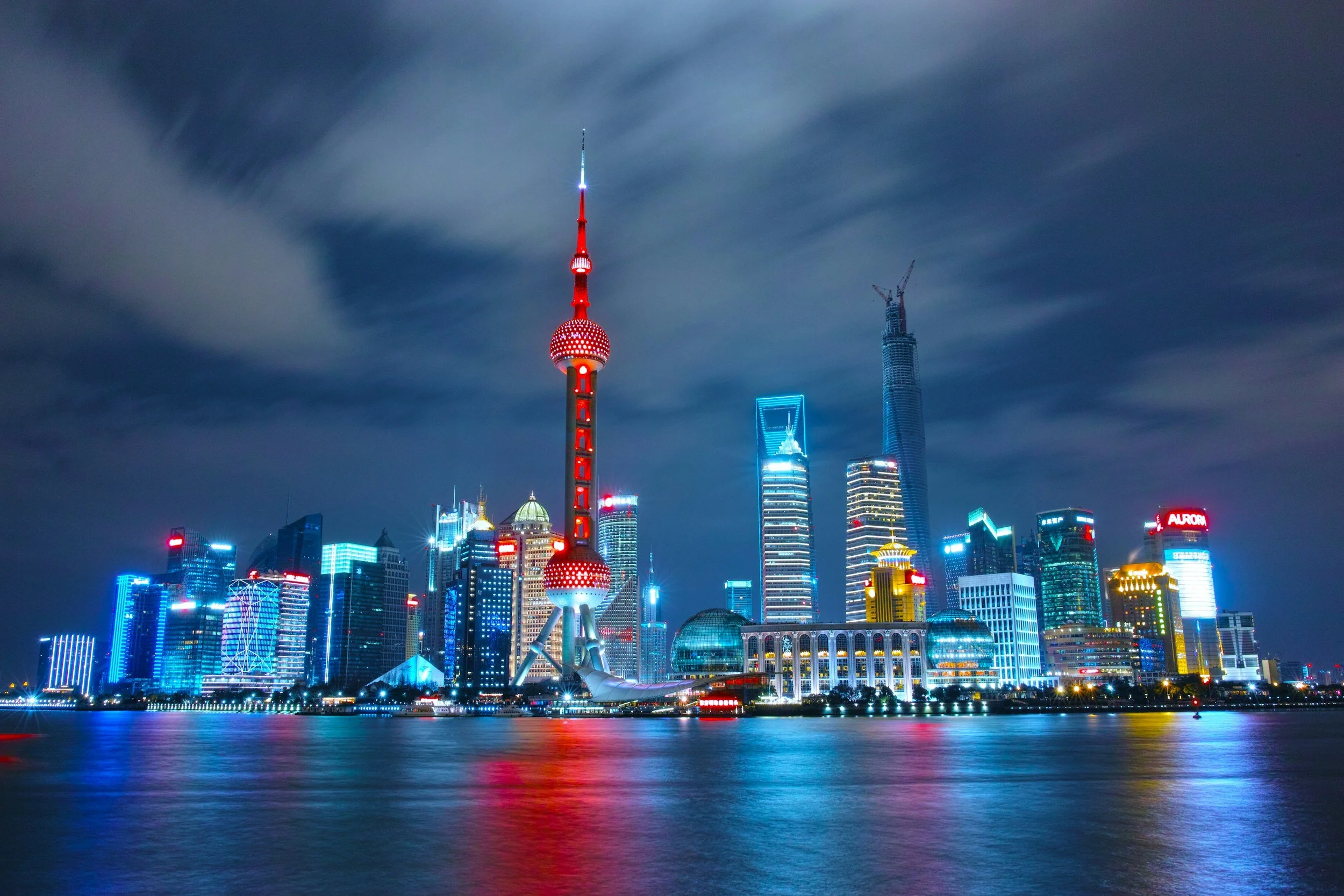Stranger In A Strange Land
I am spending ten days in China (currently two days in), travelling first through Shanghai and then on to Shenzhen. It is my second time here, although the first trip was twenty or so years ago, and so this might as well be the first time. I am not going to pretend that spending 10 days in another country, gives me any authority as to why people might decide to leave (and head to NZ), although having lived in the United Kingdom and spending the better part of 12 years travelling for work, I do have some empathy and perhaps recognition for the thoughts that migrants might have as they contemplate a new life in a new country.
As a foreigner in a strange land, you do experience things very differently to a local and of course, there is the awe and wonder that comes with visiting somewhere that has more people in one city district that your entire country combined. Shanghai is one of those places, an enormous, sprawling metropolis filled with architecture (of varying flavours), sights to behold and of course people - so many people. I appreciate that China has plenty of variations and not all of it looks like Shanghai might, but this is a cutting-edge city, modern, clean and efficient. Sure the air isn’t so clear all the time and whilst its hot, you won’t burn in less time than it takes to boil an egg, as you might in New Zealand, but it really is quite a marvel.
However, in all of that efficiency and spectacle, you start to appreciate why people might consider somewhere like New Zealand as a very attractive place to live. As a buzzing, thriving centre of commerce, Shanghai is hard to beat and everything here is efficient and convenient (more on that later) but with that comes the cost of space, the obvious political differences and the relative calm and quiet that New Zealand can offer. However walking a few miles in the shoes of those that you help, is never a bad thing.
Stranger In A Strange Land
Thankfully, we are not alone on this trip and we have two very well-versed locals to act as our guides. Two of the Turner Hopkins team, born in China, but now residing in New Zealand, were able to show the other two (of which I was one) around and demonstrate to them, how cities like this function. Having inside-knowledge is a massive help, when you are trying to navigate a new place, and particularly one as large and complex as this one.
As a quick illustration of how this place functions, I had forgotten to bring my “togs” (swimming shorts) along for the trip and of course, the hotel has a wonderful roof-top pool. Without hesitation my learned colleague (born in Shanghai) whipped out her phone, tapped in to her WeChat and helped me order a pair that would then arrive only a few hours later. To her that was pretty normal, to me, it was almost otherworldy. Sure, we can order things in NZ online and have them turn up in a day or three, but having shorts delivered to your hotel in a few hours (and they cost less than a Big Mac combo) is pretty neat.
A Fish Out of Water
Being in a new country, comes with incredible challenges, of adjustment, adaptation and assimilation.
However, in that convenience and speed, also lies a very interesting conundrum and one that I suspect leads to a few people wondering if there is something different (not necessarily better) in life. Being able to order anything and have it delivered is great, but it is a symptom of a society that is becoming overwhelmed by consumerism. For me, whilst this was a quick, easy solution to a problem, I would usually prefer the act of physically purchasing something and engaging with the people selling you the products. The scale of places like Shanghai makes this sort of convenience incredibly practical, but it also means its inhabitants become less and less connected. This automation flows through to almost every aspect of life and I can appreciate why people in cities like this, perhaps want to step back a bit and go for something simpler. I have travelled extensively and I have seen much of this progress in places around the world, where often many migrants want to escape for those very reasons.
However, being here and experiencing it all, does make you appreciate how difficult life can be when you are trying to adapt to somewhere new. Simple things like ordering groceries or even knowing which groceries to order can be complex. Eating out, finding your way around, navigating public transport are all complex things and whilst they can be fun as a tourist, they can become incredibly tiresome as a migrant - when you have to adjust to practically everything.
Being a fish out of water, or a migrant in a new country is tiring and I take my hat off (every day) to those that manage to achieve it. It is also something that we are quick to remind our clients of - you will initially experience your new home with a similar sense of awe and wonderment as I am feeling right now, however that quickly turns to a “bit of a grind” before slowly becoming the norm. If you are considering the move, just bear this in mind, because whilst you might initially feel like a fish out of water, eventually you will feel right at home in your new pond.
The Desire To Move
So, you might be wondering how all of this relates to people wanting to move, particularly from somewhere, where you can order and receive a pair of shorts almost as quickly as you can order a pizza. Well, I guess that is the point - no matter how convenient life might be for some people around the world, there still lives a burning desire to find somewhere new and the reasons behind that desire, will be as varied as the items you can order on WeChat.
Different Motivators
Each migrant will have their own reasons for wanting to move, but there are always common themes.
What I have found over the years however is that while most migrants will have their own unique reasons for wanting to move, they all fall within very similar or common themes.
For some, the main driver will be lifestyle, even though they might have all the convenience in the world, being one of just a million people living in a very small geographic space would be enough to make you want to move. For others it may be more of a case of need, rather than want, particularly in terms of safety. For the Chinese, there will also be a myriad of reasons, some economic, some political and others lifestyle oriented, particularly when it comes to considering children and their education.
What stands out for me, in all of that and particularly being here in a city where you can literally have anything you want, delivered to your door, in a nano-second, is that New Zealand, whilst not perfect, is somewhere a lot of people want to be. Sure, it might take you a bit longer to order your bubble-tea, but you will also have it delivered to a house, where you have some lawns, a garden and a bit more space than you need to swing a cat.
Life in places like Shanghai is incredibly convenient, but also very automated and ultimately controlled. For many migrants, escaping to somewhere with relative freedom, space and where you can see the blue in the sky is not just something they want to do, but almost something they need to do.
Thinking About The Move
Migrating is not for the faint of heart, which is something I find myself saying to all of our clients along the way (and usually at the very start). Uprooting yourself from everything you know, to become a stranger in a strange land (at least for a while) is one of the hardest things that anyone could ever consider doing, and yet they do.
The motivations for people moving anywhere are unique and varied, but certainly from this part of the world, they having nothing to do with convenience, but more to do with lifestyle, opportunities and in many cases a better environment for children. Many migrants make the decision to move to another country, based largely on the educational and other benefits that their children will receive, particularly when you come from a country where convenience comes at the cost of your work-life balance.
No matter what the reasons are, planning and preparing for the move are crucial and understanding the challenges that you will face are a really big part of that. We know, and for some of our team, that experience is very real, with two of my very learned and experienced colleagues, having gone through the process themselves (one from China and one from Korea). They both had their own reasons and went through their own struggles and are uniquely qualified to assist people in doing the same thing.
I personally haven’t migrated anywhere permanently but I have been lucky enough to travel extensively and to catch a small glimpse of what life is like for the people we help.
However for now, I am going to enjoy the promptly delivered swimming shorts, take a dip and then explore a little more of what this fascinating city has to offer…whilst also remembering that home is only a week or so away.
Until next week…



